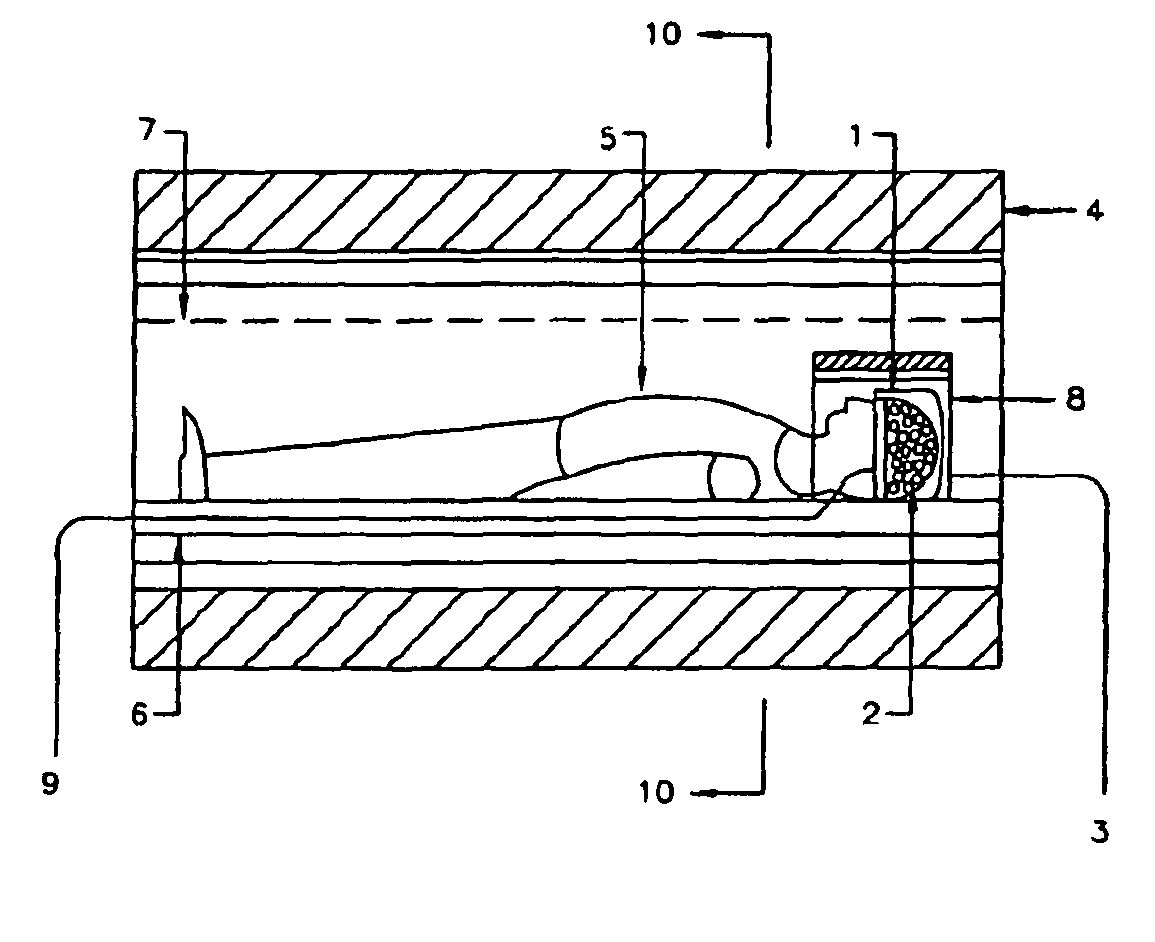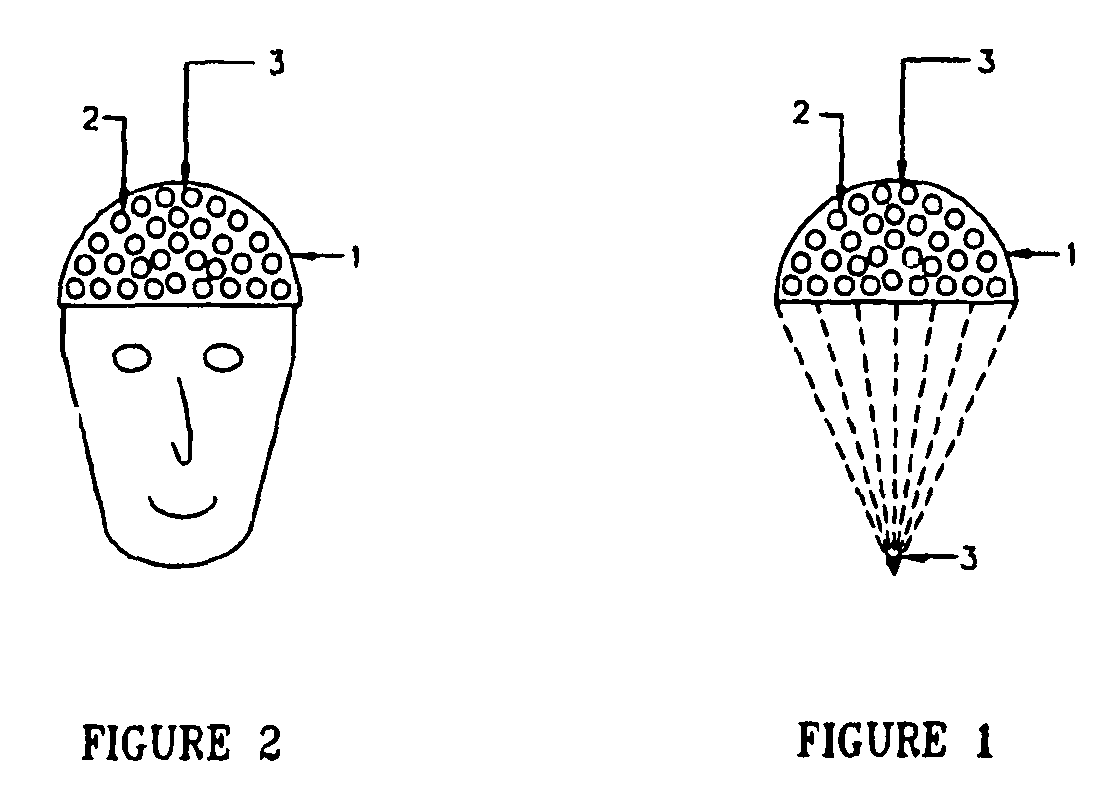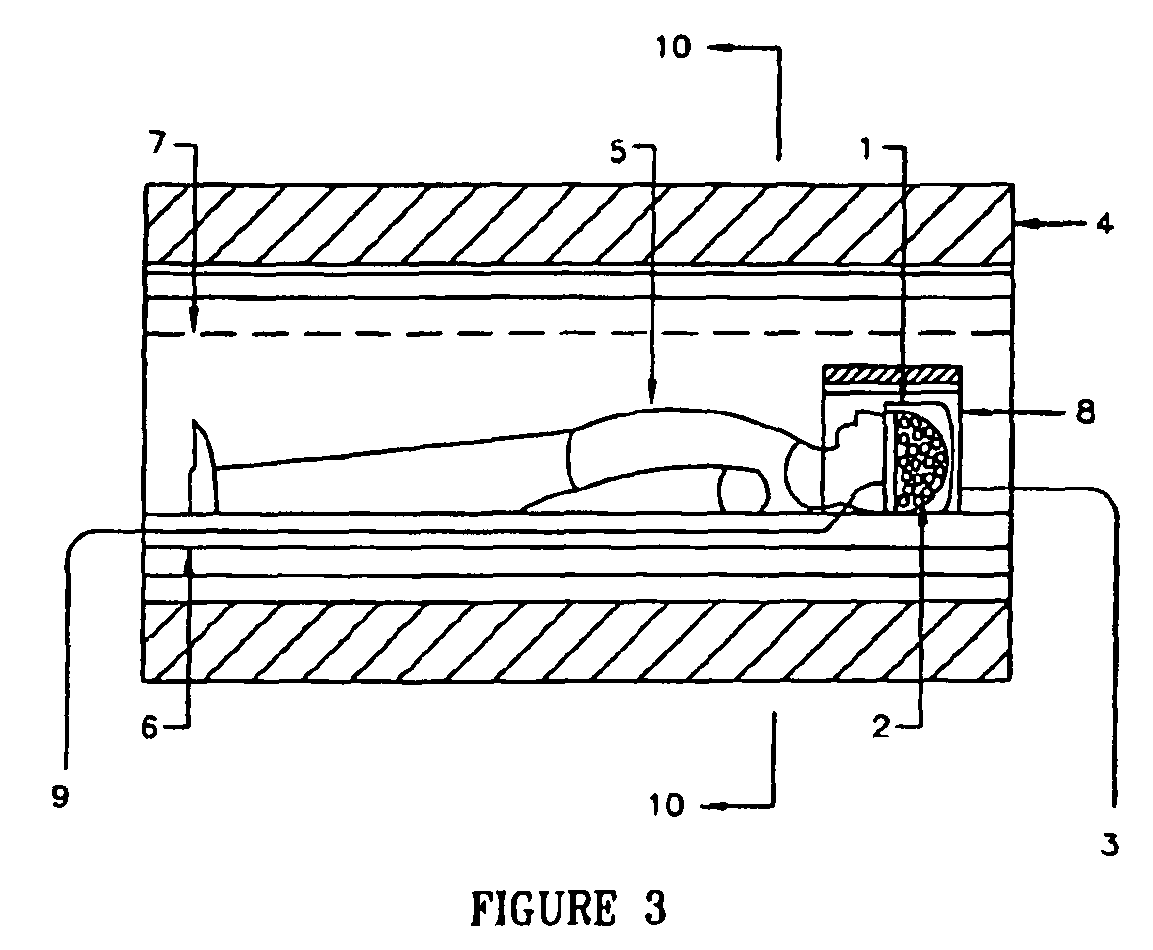Methods for modifying electrical currents in neuronal circuits
a neuronal circuit and electrical current technology, applied in the field of medical diagnosis and treatment, can solve the problems of slow study process, lack of reliable activation of these circuits, and method, which has several problems
- Summary
- Abstract
- Description
- Claims
- Application Information
AI Technical Summary
Benefits of technology
Problems solved by technology
Method used
Image
Examples
Embodiment Construction
[0021]FIG. 1 illustrates a preferred embodiment of a focused ultrasound pulse (FUP) device. A cap 1 houses multiple ultrasound transducers 2, preferably 300-1000 transducers. The FUP device is preferably a multi-beam ultrasonic device, which is coordinated via computer with conventional brain-imaging system, such as a focused magnetic resonance imaging (fMRI) system, a vector-electroencephalograph (V-EEG) or a positron emission tomograph (PET), preferably an fMRI system. An example of a preferable multi-beam ultrasonic device is an ultrasound knife. The transducers are regulated via a computer capable of focusing the ultrasound waves into a specific point 3. The cap and transducers are preferably made from a non-ferromagnetic material, a material that has a very low permeability and residual magnetism and hysterisis, such as copper. The use of a non-ferromagnetic material reduces fMRI field distortion and thereby reduces distortion of the image, permitting the application of FUP con...
PUM
 Login to View More
Login to View More Abstract
Description
Claims
Application Information
 Login to View More
Login to View More - R&D
- Intellectual Property
- Life Sciences
- Materials
- Tech Scout
- Unparalleled Data Quality
- Higher Quality Content
- 60% Fewer Hallucinations
Browse by: Latest US Patents, China's latest patents, Technical Efficacy Thesaurus, Application Domain, Technology Topic, Popular Technical Reports.
© 2025 PatSnap. All rights reserved.Legal|Privacy policy|Modern Slavery Act Transparency Statement|Sitemap|About US| Contact US: help@patsnap.com



